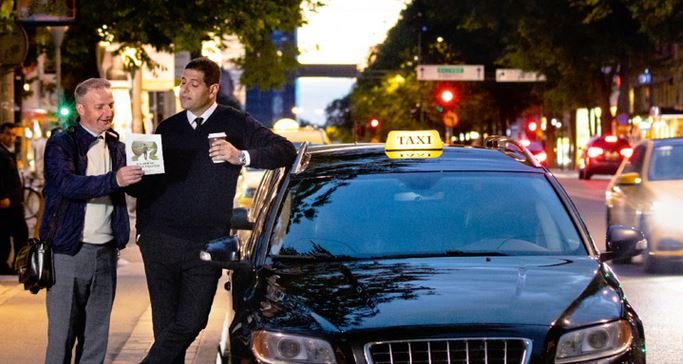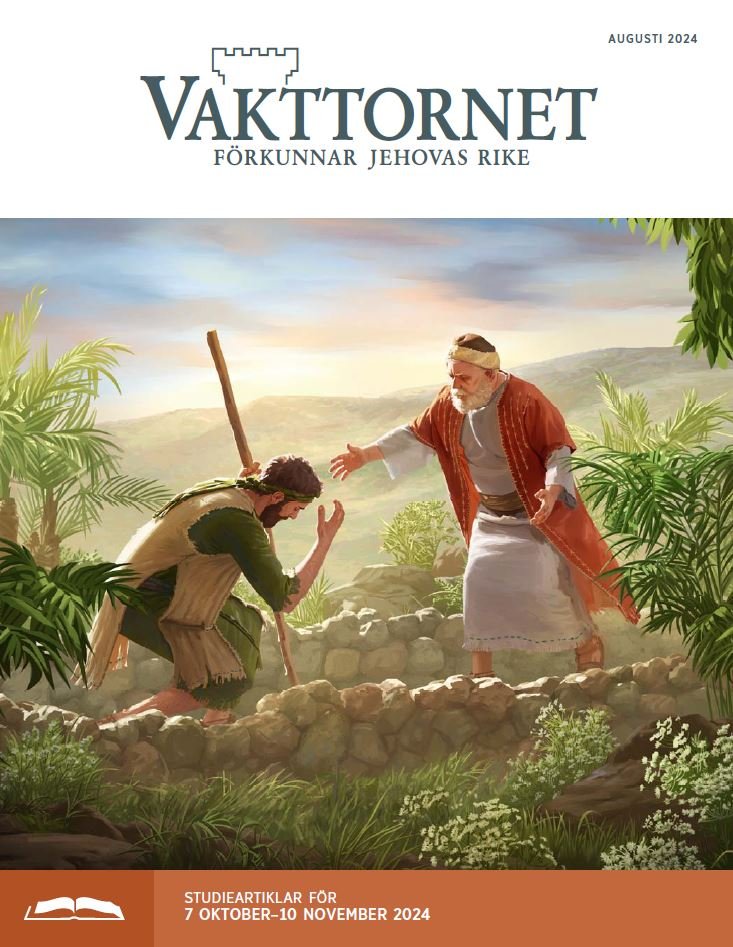By the decision of October 24, 2025, discrimination against the Jehovah’s Witnesses was officially reinstated.
by Massimo Introvigne
Article 3 of 4. Read article 1 and article 2.

In our previous articles, I traced the lengthy legal and political journey of Jehovah’s Witnesses in Sweden—from their initial registration as a religious community in 2000, through years of litigation, to their eventual inclusion in the state subsidy system in 2019. I then examined the backlash that followed: public statements by government officials, a legislative overhaul in 2024, and the creation of a new legal framework seemingly designed to exclude them once again.
I examine now the culmination of this campaign: the October 24, 2025, decision by the Swedish Agency for Support to Faith Communities (SST) to deny Jehovah’s Witnesses access to state subsidies under the new law. The decision, along with the process leading up to it, raises serious concerns about religious freedom, state neutrality, and the functioning of Sweden’s democratic institutions.
On March 10, 2025, Jehovah’s Witnesses submitted a formal application for eligibility under the new Act 2024:487, which required all religious communities to reapply for state support. Their application included a full documentation affirming their peaceful religious activities and compliance with Swedish law.
But on May 27, the SST responded not with administrative queries, but with a series of doctrinal questions—focusing on three controversial topics: corporal punishment of children; social exclusion of ex-members; and exclusion from the organization based on specific behaviors, particularly “choice of life partner” (in practice, same-sex relationships).
Jehovah’s Witnesses declined to answer, citing the SST’s lack of neutrality—the subject matter of their pending case before the Supreme Administrative Court. The SST in turn issued its own decision denying bias (which, as mentioned in my previous article, the Jehovah’s Witnesses appealed before the Stockholm Administrative Court of First Instance) and proceeded with a substantive ruling, which was rendered on October 24 and excluded the Jehovah’s Witnesses from state subsidies.
The SST’s initial question referenced decades-old texts suggesting a tolerance for corporal punishment. But this issue was not included in the final grounds for denial. Perhaps the agency recognized the weakness of its argument.
Indeed, such texts must be read in historical context. In past decades, many religious and secular institutions tolerated corporal punishment. Today, Jehovah’s Witnesses emphatically reject harsh treatment of children. As stated in their February 2022 Watchtower: “There is never a reason for a Christian parent to treat his children harshly” (“Does Your Counsel ‘Make the Heart Rejoice?’,” “The Watchtower,” Study Edition, February 2022, pp. 14–19 [18]). This clear stance renders the SST’s fishing expedition into old literature both irrelevant and misleading.
The SST’s second concern centers on the Jehovah’s Witnesses’ practice of disfellowshipping—counseling members to limit association with those who have been expelled or have voluntarily disassociated due to serious unrepentant conduct. The agency claimed this was especially harmful when applied to minors, though it failed to provide evidence of such cases in Sweden. In reality, exclusions of minors are exceedingly rare.
This issue has been litigated in over a dozen countries, with courts consistently ruling in favor of Jehovah’s Witnesses. The consensus is clear: no one can be compelled to maintain relationships they no longer wish to sustain. Estrangement is a common social phenomenon, often observed in divorces, family disputes, and personal conflicts.
Critics do not ask courts to force Jehovah’s Witnesses to associate with ex-members. Instead, they seek to prohibit the teaching that such relationships should be suspended. But this teaching is rooted in Biblical texts, including 1 Corinthians 5:13 (“Expel the wicked person from among you”), 1 Corinthians 5:11 (“Do not even eat with such people”), and 2 John 10–11 (“Do not take them into your house or welcome them…”).
These verses, quoted from the New International Version, reflect theological issues that secular courts have no authority to adjudicate without violating freedom of religion.

Jehovah’s Witnesses have also refined their approach. In the August 2024 issue of “The Watchtower,” the emphasis was on empathy, kindness, and restoration. Removal is portrayed as a last resort, and elders are instructed to act with dignity and compassion at all times. For baptized adolescents, elders defer to parental guidance, and removal is extremely rare.
The SST also claimed that Jehovah’s Witnesses exclude members who live with partners who are not Jehovah’s Witnesses themselves. Stated in these terms, the claim is factually incorrect. If a spouse leaves the faith or is excluded, the Jehovah’s Witnesses teach that marital relationships should continue, including intimacy, though spiritual activities may cease. The spouse who remains a Jehovah’s Witness is not excluded.
The real focus of the SST’s decision was on same-sex relationships. Jehovah’s Witnesses do not admit or retain members who openly live in such relationships, as this is viewed as incompatible with their interpretation of Biblical teachings.
The SST appears to interpret the new law as creating a “right” to become and remain a Jehovah’s Witness, regardless of lifestyle choices—even if those choices conflict with the group’s religious doctrine. More troubling, the government or the SST—not the religious organization—is asserting the authority to define membership criteria.
This is a gross violation of corporate religious freedom. As affirmed by numerous decisions at the European and national levels, religious organizations have the right to determine who can and cannot be a member. To override this autonomy is to dismantle the very foundation of religious liberty.
In the October 24, 2025, SST decision, Jehovah’s Witnesses are excluded from state subsidies on the grounds of doctrinal disagreements, selective scrutiny, and a troubling assertion of state authority over religious membership.
This decision marks a regression in Sweden’s commitment to pluralism. It replaces judicially affirmed equality with bureaucratic exclusion. It substitutes impartial governance with ideological policing.
In our next article, I will examine the legal and international implications of this decision and what they mean for religious freedom in Sweden and beyond.

Massimo Introvigne (born June 14, 1955 in Rome) is an Italian sociologist of religions. He is the founder and managing director of the Center for Studies on New Religions (CESNUR), an international network of scholars who study new religious movements. Introvigne is the author of some 70 books and more than 100 articles in the field of sociology of religion. He was the main author of the Enciclopedia delle religioni in Italia (Encyclopedia of Religions in Italy). He is a member of the editorial board for the Interdisciplinary Journal of Research on Religion and of the executive board of University of California Press’ Nova Religio. From January 5 to December 31, 2011, he has served as the “Representative on combating racism, xenophobia and discrimination, with a special focus on discrimination against Christians and members of other religions” of the Organization for Security and Co-operation in Europe (OSCE). From 2012 to 2015 he served as chairperson of the Observatory of Religious Liberty, instituted by the Italian Ministry of Foreign Affairs in order to monitor problems of religious liberty on a worldwide scale.



